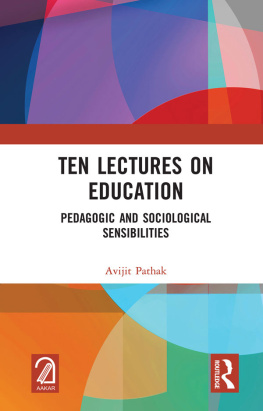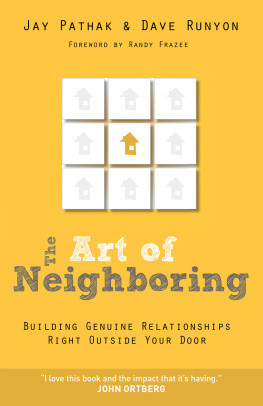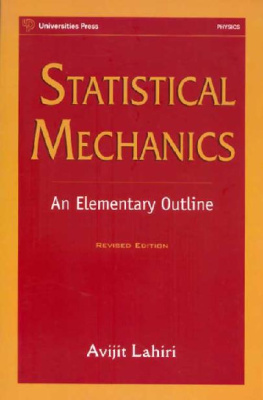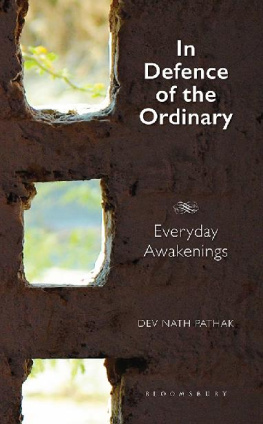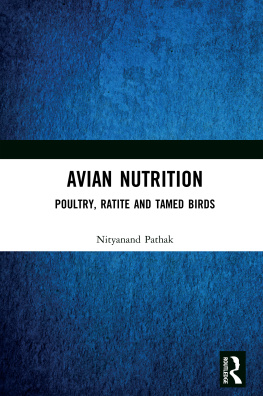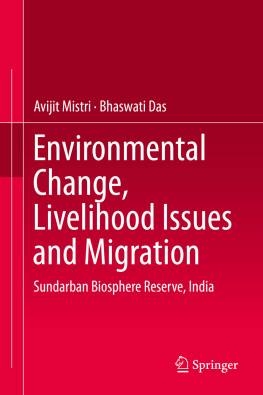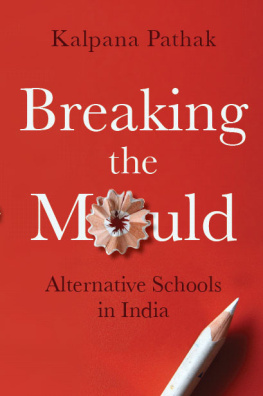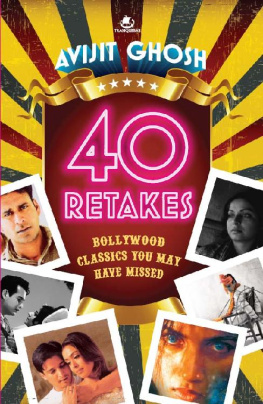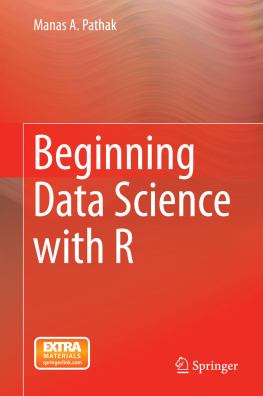Avijit Pathak - Ten Lectures on Education
Here you can read online Avijit Pathak - Ten Lectures on Education full text of the book (entire story) in english for free. Download pdf and epub, get meaning, cover and reviews about this ebook. year: 2020, publisher: Aakar Books, genre: Religion. Description of the work, (preface) as well as reviews are available. Best literature library LitArk.com created for fans of good reading and offers a wide selection of genres:
Romance novel
Science fiction
Adventure
Detective
Science
History
Home and family
Prose
Art
Politics
Computer
Non-fiction
Religion
Business
Children
Humor
Choose a favorite category and find really read worthwhile books. Enjoy immersion in the world of imagination, feel the emotions of the characters or learn something new for yourself, make an fascinating discovery.
- Book:Ten Lectures on Education
- Author:
- Publisher:Aakar Books
- Genre:
- Year:2020
- Rating:3 / 5
- Favourites:Add to favourites
- Your mark:
- 60
- 1
- 2
- 3
- 4
- 5
Ten Lectures on Education: summary, description and annotation
We offer to read an annotation, description, summary or preface (depends on what the author of the book "Ten Lectures on Education" wrote himself). If you haven't found the necessary information about the book — write in the comments, we will try to find it.
Ten Lectures on Education — read online for free the complete book (whole text) full work
Below is the text of the book, divided by pages. System saving the place of the last page read, allows you to conveniently read the book "Ten Lectures on Education" online for free, without having to search again every time where you left off. Put a bookmark, and you can go to the page where you finished reading at any time.
Font size:
Interval:
Bookmark:
Pedagogic and Sociological Sensibilities
Avijit Pathak

To the spirit of The New Leama creative endeavour that seeks to make a difference in the way we look at education
First published 2021
by Routledge
2 Park Square, Milton Park, Abingdon, Oxon OX14 4RN
and by Routledge
52 Vanderbilt Avenue, New York, NY 10017
Routledge is an imprint of the Taylor & Francis Group, an informa business
2021 Avijit Pathak and Aakar Books
The right of Avijit Pathak to be identified as author of this work has been asserted by him in accordance with sections 77 and 78 of the Copyright, Designs and Patents Act 1988.
All rights reserved. No part of this book may be reprinted or reproduced or utilised in any form or by any electronic, mechanical, or other means, now known or hereafter invented, including photocopying and recording, or in any information storage or retrieval system, without permission in writing from the publishers.
Trademark notice: Product or corporate names may be trademarks or registered trademarks, and are used only for identification and explanation without intent to infringe.
Co-published with Aakar Books, New Delhi. Print edition not for sale in South Asia (India, Sri Lanka, Nepal, Bangladesh, Pakistan or Bhutan)
British Library Cataloguing-in-Publication Data
A catalogue record for this book is available from the British Library
Library of Congress Cataloging-in-Publication Data
A catalog record for this book has been requested
ISBN: 978-0-367-61648-9 (hbk)
ISBN: 978-1-003-10588-6 (ebk)
Typeset in Palatino
by Arpit Printographers, New Delhi 110092

Touch a book. Feel it. It whispers in your ears. It begins to speak of its origin and its inspiration. Yes, the present book too has a story to tell. It emerges in the process of a sustained interaction with my students. As I teach a course in Sociology of Education, the classroom becomes vibranta source of inspiration for me to work on my lectures. However, these foundation lectures do not aim at covering a fixed syllabus, dictating notes or narrating what is popularly regarded as review of literature. Instead, the lectures, I assume, are enabling. The goal is to invite my students to the world of ideas, and inspire them to raise new questions and see the world with their own eyes. No wonder, these foundation lectures create the ground for constant dialogue reflections on books and articles, celebration of classroom diaries, and creative research projects uniting theory and practice. In a way, if you read the book carefully, you will feel the vibrancy of the classroom, which, I have always believed, is sacred.
These ten lectures seek to create a new academic environment that believes that the art of knowing is about thinking and feeling, rigour and care, reflexivity and criticality, and theory and poetry. It is not about becoming a mere expert or a knowledgeable man; it is essentially about positive life-affirmation. That is why a careful reader would find a different flavour in the book. It cannot be read as something distant; instead, it is you; it hugs you; it talks to you. You are bound to think of the deeper meaning of education, its sociological context, critical pedagogy, and the issues relating to science, religion, market, nation and diverse ideologies of education. It makes you interrogate the existing pathology; and at the same time, it makes you dream and strive for a new possibility. And it is inherently inclusive in its nature; Illich and Freire, Buber and Weber, Gramsci and Gandhi, Kant and Buddha, Tagore and Eliot, Jidu Krishnamurti and Michael Applethe book makes you converse with them, and leads you to ask a series of questions on the very purpose of education.
Well, I work on my lectures (and for me, there is no better research than teaching), and make a tentative outline for each lecture. However, the classroom has its own dynamics. Yes, my preparation helps me; but I speak freely, spontaneously without looking at my papers. The presence of bright/curious students inspires me; ideas and discourses begin to flow; possibly, something possesses me. I feel the ideas that have emerged from my classroom conversations should reach a wider audience. This is not arrogance; this is essentially my urge to build a bridge between a privileged university and the larger community of young learners, researchers and teachers. That is why I have chosen to reformulate my spontaneous lectures without altering the basic tone and spirit of the arguments. The book has emerged out of this effort. Since these are lectures, I have not followed the tradition of writing research papers with detailed notes and references. Yes, I have engaged with many books; but then, in the text you do not find the technicalities of references (in the spontaneous flow of lectures you do not mention the year of publication or the page number). The sole idea is to invite the reader, and she/he would find everything.
I am grateful to my studentsthe cultural landscape of the class, its heterogeneity and internationalism. The relaxed environment of my university inspires me to keep experimenting with pedagogic practices. I am indebted to the universityits trees and butterflies, its peacocks and migratory birds, its sunrise and sunset. My family and particularly, my daughter have always encouraged me to write. My discussions with Vikasha creative soul working in the field of education and alternative publicationshave enriched my ideas. Nothing is possible without the feminine grace. From the clouds, my mother and my wife have blessed me. The book belongs to them. My readers, I hope, will find this exercise most meaningful.
Jawaharlal Nehru University
New Delhi
December 04, 2017
Avijit Pathak
Education and Enlightenment
It is always good to begin with a simple question. What is education? I know all of you would say that there is no point in raising this question in a postgraduate class. The answer is simple and well known. Any Standard English dictionary defines education as bringing up or training of a child; instruction; and strengthening the powers of body and mind. You would agree. Education does try to train the child. And these days it is beginning quite earlyright from play schools. Toilet habits, dietary practice, and the ability to remain outside the protective context of family, and mix with othersthe instruction goes on. Again, it tries to strengthen the powers of the body and mind. What else do school assemblies, timetable, and other rituals seek to fulfil?And with your experience you would add further. From nursery class to postgraduationyou would say that education is a formal training in a legitimate institution with prescribed curriculum, codified texts and professional subject experts as teachers. You would say that education implies acquisition of information, knowledge and skills; it is graded learning one passes through a process of examinations and evaluation. Recall the day you learned A means apple; or Z means zebra; and now after passing through a ladder you are learning Durkheim means division labour; or Foucault means discipline and surveillance. Meanwhile, many have fallen from the ladder; they are not privileged like you. Some of them failed to memorize that the Kalinga war led to the inner transformation of King Ashoka; or failed to calculate the area of a trapezium. They could not come to college or university. So you have learned that education is also about competition, success and survival strategy. Not solely that. You would say that education enhances the possibility of upward social mobility; the skills that you learnintellectual as well as technicalhelp you to get a job, which gives you, to use the management vocabulary, an attractive package. As I recall, the Bengali primer that I studied when I was a child contained a revealing message: Those who are good in studies are the ones who ride horses and elephants.
Font size:
Interval:
Bookmark:
Similar books «Ten Lectures on Education»
Look at similar books to Ten Lectures on Education. We have selected literature similar in name and meaning in the hope of providing readers with more options to find new, interesting, not yet read works.
Discussion, reviews of the book Ten Lectures on Education and just readers' own opinions. Leave your comments, write what you think about the work, its meaning or the main characters. Specify what exactly you liked and what you didn't like, and why you think so.

